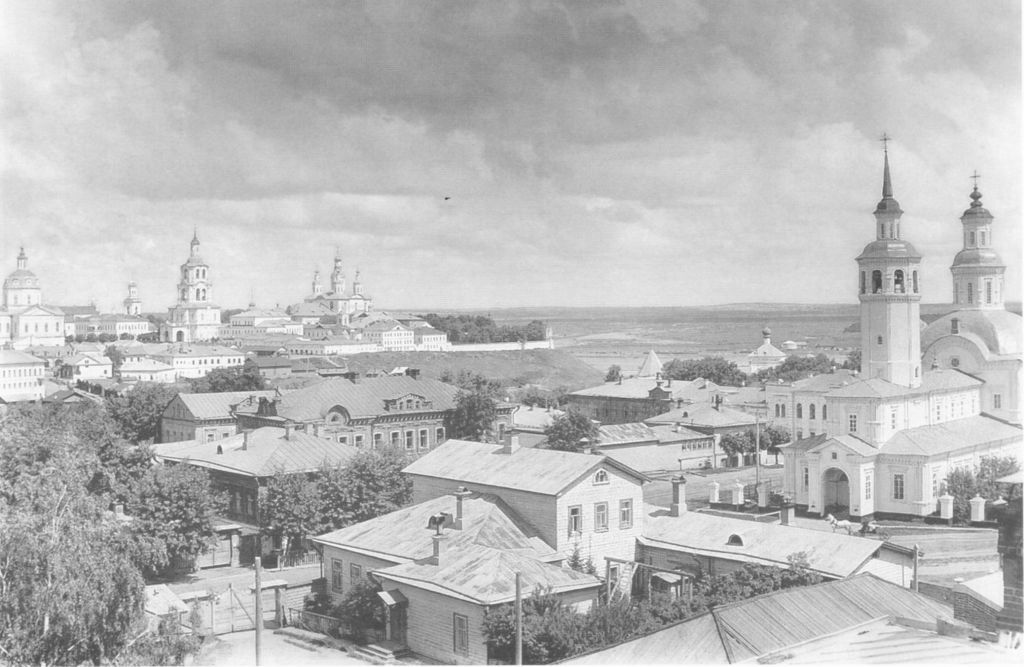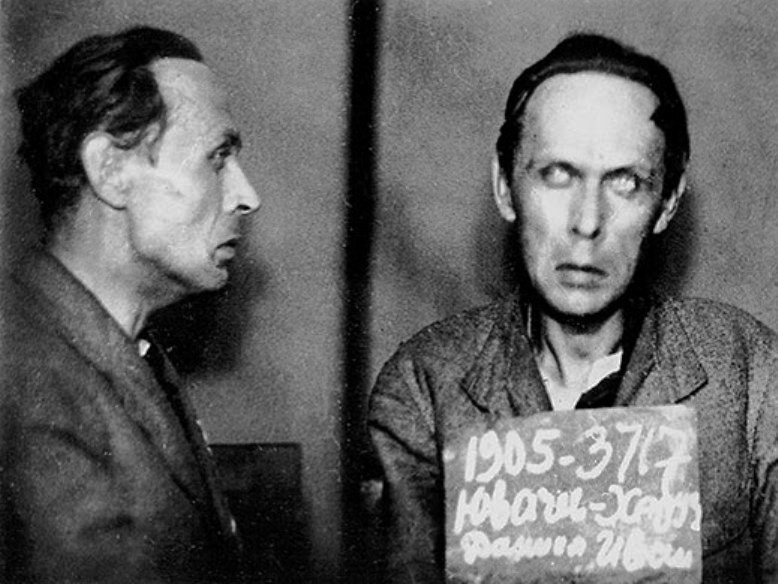|
Yuri Ardashev
Yuri Alexeyevich Ardashev (russian: Юрий Алексеевич Ардашев; born 22 January 1965) is a Russian theatre director, actor, and professional drummer. Opera ''La voix humaine'' by Francis Poulenc, directed by Yuri Ardashev, became the nominee of the national award " Golden Mask" (2009) in the categories "Best Performance", "Best Actress". Biography Yuri Ardashev studied at the Kirov Academy of Arts anthe State musical college named after Gnessinson Percussion instruments. He graduated from the Gerasimov Institute of Cinematography (studio Vladimir Naumov) and Russian Academy of Theatre Arts (Master Yuri Lyubimov), specializing in directing. He worked in TV's Companies Star Plus, Grand TV (Vyatka), filmed commercials and documentaries, worked as an actor and assistant director at the Taganka Theatre. As assistant attended by the director Yuri Lyubimov of performances: * "Suf(f)le" on the works of Friedrich Nietzsche, Franz Kafka, Samuel Beckett, James Joyce * ... [...More Info...] [...Related Items...] OR: [Wikipedia] [Google] [Baidu] |
Kirov, Kirov Oblast
Kirov ( rus, Ки́ров, p=ˈkʲirəf, a=Ru-Киров.ogg) is the largest city and administrative center of Kirov Oblast, Russia. It is located on the Vyatka River in European Russia, 896 km northeast of Moscow. Its population was 518,348 in 2020. Kirov is a historical, cultural, industrial, and scientific center of Priural'e (territory on the west side of the Ural Mountains); place of origin for Dymkovo toys; the most eastern city founded during the times of Kievan Rus'. The city also had the names of Khlynov (, from 1457 to 1780), and Vyatka (, until 1934). History Principality and republic The native Slavic tribe of Central Russia and Volga regions, the Vyatichis (also called Viatichi), mixed here with the Novgorod Slavs, Novgorodian Slovenes and Finno-Ugric languages, Finno-Ugric people. According to the medieval chronicles the first Russian settlements in the area appeared in 12th century. Kirov itself was first mentioned (as Vyatka) for the first time i ... [...More Info...] [...Related Items...] OR: [Wikipedia] [Google] [Baidu] |
Taganka Theatre
Taganka Theatre (russian: link=no, Театр на Таганке, Театр драмы и комедии на Таганке, "Таганка") is a theater located in the Art Nouveau building on Taganka Square in Moscow. History The Drama and Comedy Theater was founded in 1946. The head director was Aleksandr Plotnikov and the actors came from various Moscow theater schools and provincial theaters. By 1960s the theater's attendance was at its lowest and in January 1964 Plotnikov resigned. In his place came Yuri Lyubimov, then an actor at Vakhtangov theater who brought with him his own students from Shchukin Theater School. Under Lyubimov, the theatre shot to popularity in Moscow, with Vladimir Vysotsky, Zinaida Slavina and Alla Demidova as the leading actors. Other notable members of Lyubimov's troupe have been Valery Zolotukhin, Veniamin Smekhov, and Leonid Filatov. Nikolai Erdman (famous for his work with Vsevolod Meyerhold in the 1920s) was responsible for the theatre's r ... [...More Info...] [...Related Items...] OR: [Wikipedia] [Google] [Baidu] |
Three Sisters (play)
''Three Sisters'' (russian: Три сeстры́, translit=Tri sestry) is a play by the Russian author and playwright Anton Chekhov. It was written in 1900 and first performed in 1901 at the Moscow Art Theatre. The play is sometimes included on the short list of Chekhov's outstanding plays, along with ''The Cherry Orchard'', ''The Seagull'' and ''Uncle Vanya''. Characters The Prozorovs * Olga Sergeyevna Prozorova (Olga) – The eldest of the three sisters, she is the matriarchal figure of the Prozorov family, though at the beginning of the play she is only 28 years old. Olga is a teacher at the high school, where she frequently fills in for the headmistress whenever the latter is absent. Olga is a spinster and at one point tells Irina that she would have married "any man, even an old man if he had asked" her. Olga is very motherly even to the elderly servants, keeping on the elderly nurse/retainer Anfisa, long after she has ceased to be useful. When Olga reluctantly takes the ... [...More Info...] [...Related Items...] OR: [Wikipedia] [Google] [Baidu] |
Boris Grebenshchikov
Boris Borisovich Grebenshchikov (russian: link=no, Борис Борисович Гребенщиков; born ) is a prominent member of the generation which is widely considered to be the "founding fathers" of Russian rock music. He is the founder and lead singer of the band Aquarium which has been active from 1972 until today. Grebenshchikov is frequently referred to as BG (russian: link=no, БГ; pronounced "Beh-Geh"), after his initials. On 5 October 2022, he appeared on BBC Hardtalk talking about his opposition to the Russian intervention in Ukraine, his self-imposed exile to London, and his involvement with Dave Stewart to produce an antiwarecordto support the people of Ukraine. Early years (1953–1979) Grebenshchikov was born on 27 November 1953, in Leningrad, now St. Petersburg. In 1972, he founded the band Aquarium with his childhood friend Anatoly "George" Gonitsky as a postmodern theatrical endeavor that included poetry and music. Grebenshchikov was accepted into ... [...More Info...] [...Related Items...] OR: [Wikipedia] [Google] [Baidu] |
Silver Age Of Russian Poetry
Silver Age (Сере́бряный век) is a term traditionally applied by Russian philologists to the last decade of the 19th century and first two or three decades of the 20th century. It was an exceptionally creative period in the history of Russian poetry, on par with the Golden Age a century earlier. The term ''Silver Age'' was first suggested by philosopher Nikolai Berdyaev, but it only became customary to refer thus to this era in literature in the 1960s. In the Western world other terms, including ''Fin de siècle'' and ''Belle Époque'', are somewhat more popular. In contrast to the Golden Age, female poets and writers influenced the movement considerably, and the Silver Age is considered to be the beginning of the formal academic and social acceptance of women writers into the Russian literary sphere. History Although the Silver Age may be said to have truly begun with the appearance of Alexander Blok's "Verses about the Beautiful Lady", many scholars have extended its ... [...More Info...] [...Related Items...] OR: [Wikipedia] [Google] [Baidu] |
Bricolage
In the arts, ''bricolage'' ( French for "DIY" or "do-it-yourself projects") is the construction or creation of a work from a diverse range of things that happen to be available, or a work constructed using mixed media. The term ''bricolage'' has also been used in many other fields, including anthropology, philosophy, critical theory, education, computer software, and business. Origin ''Bricolage'' is a French loanword that means the process of improvisation in a human endeavor. The word is derived from the French verb ''bricoler'' ("to tinker"), with the English term DIY ("Do-it-yourself") being the closest equivalent of the contemporary French usage. In both languages, ''bricolage'' also denotes any works or products of DIY endeavors. The arts Visual art In art, bricolage is a technique or creative mode, where works are constructed from various materials available or on hand, and is often seen as a characteristic of postmodern art practice. It has been likened to the conc ... [...More Info...] [...Related Items...] OR: [Wikipedia] [Google] [Baidu] |
Aleksei Kruchenykh
Aleksei Yeliseyevich Kruchyonykh (russian: Алексе́й Елисе́евич Кручёных; 9 February 1886 – 17 June 1968) was a Russian poet, artist, and theorist, perhaps one of the most radical poets of Russian Futurism, a movement that included Vladimir Mayakovsky, David Burliuk and others. Born in 1886, he lived in the time of the Russian Silver Age of literature, and together with Velimir Khlebnikov, another Russian Futurist, Kruchenykh is considered the inventor of ''zaum'', a poetry style utilising nonsense words. Kruchonykh wrote the libretto for the Futurist opera ''Victory Over the Sun'', with sets provided by Kazimir Malevich. In 1912, he wrote the poem ''Dyr bul shchyl''; four years later, in 1916, he created his most famous book, ''Universal War''. He is also known for his ''Declaration of the Word as Such'' (1913): "The worn-out, violated word "lily" is devoid of all expression. Therefore I call the lily ''éuy'' – and original purity is res ... [...More Info...] [...Related Items...] OR: [Wikipedia] [Google] [Baidu] |
Nikolay Zabolotsky
Nikolay Alekseyevich Zabolotsky (russian: Никола́й Алексе́евич Заболо́цкий; May 7, 1903 – October 14, 1958) was a Soviet and Russian poet and translator. He was a Modernist and one of the founders of the Russian avant-garde absurdist group Oberiu. Life and work Nikolay Alekseyevich Zabolotsky was born on May 7, 1903 in Kizicheskaya sloboda (now part of the city of Kazan). His early life was spent in the towns of Sernur (now in the Republic of Mari El) and Urzhum (now in the Kirov Oblast). In 1920, Zabolotsky left his family and moved to Moscow, enrolling simultaneously in the departments of medicine and philology at the Moscow State University. A year later, he moved to Petrograd (now Saint Petersburg) and enrolled in the Pedagogical Institute of Leningrad State Pedagogical Institute. Zabolotsky had already begun to write poetry at this time. His formative period showed the influences of the Futurist works of Vladimir Mayakovsky and Velimir Khl ... [...More Info...] [...Related Items...] OR: [Wikipedia] [Google] [Baidu] |
Daniil Kharms
Daniil Ivanovich Kharms (russian: Дании́л Ива́нович Хармс; – 2 February 1942) was an early Soviet-era Russian avant-gardist and absurdist poet, writer and dramatist. Early years Kharms was born as Daniil Yuvachev in St. Petersburg, into the family of Ivan Yuvachev, a member of the revolutionary group The People's Will. By the time of his son's birth, Ivan Yuvachev had already been imprisoned for his involvement in subversive acts against Tsar Alexander III and had become a philosopher. Daniil invented the pseudonym Kharms while attending Saint Peter's School. While at Saint Peter's, he learned the rudiments of both English and German, and it may have been the English words "harm" and "charm" that he incorporated into "Kharms".Frazier, Ian (7 May 2015). "A Strangely Funny Russian Genius". ''The New York Review of Books'' 62 (8): 36–38. His pseudonym might have been also influenced by his fascination with Arthur Conan Doyle's Sherlock Holmes, a ... [...More Info...] [...Related Items...] OR: [Wikipedia] [Google] [Baidu] |
Alexander Vvedensky (poet)
Alexander Ivanovich Vvedensky (russian: Алекса́ндр Ива́нович Введе́нский; 6 December 1904 – 19 December 1941) was a Russian poet and dramatist with formidable influence on "unofficial" and avant-garde art during and after the times of the Soviet Union. Vvedensky is widely considered (among contemporary Russian writers and literary scholars) as one of the most original and important authors to write in Russian in the early Soviet period. Vvedensky considered his own poetry "a critique of reason more powerful than Kant's." Biography Vvedensky was born in St. Petersburg, Russia, and took an interest in poetry at an early age. An admirer of Velemir Khlebnikov, Vvedensky sought apprenticeships with writers connected to Russian Futurism. In the early 1920s he studied with well-known avant-garde artists from Futurist circles such as Matiushin and Tufanov and Terentiev, at the newly formed GInHuK state arts school (headed up by Kazimir Malevich). In ... [...More Info...] [...Related Items...] OR: [Wikipedia] [Google] [Baidu] |
James Joyce
James Augustine Aloysius Joyce (2 February 1882 – 13 January 1941) was an Irish novelist, poet, and literary critic. He contributed to the modernist avant-garde movement and is regarded as one of the most influential and important writers of the 20th century. Joyce's novel ''Ulysses'' (1922) is a landmark in which the episodes of Homer's ''Odyssey'' are paralleled in a variety of literary styles, particularly stream of consciousness. Other well-known works are the short-story collection ''Dubliners'' (1914), and the novels ''A Portrait of the Artist as a Young Man'' (1916) and ''Finnegans Wake'' (1939). His other writings include three books of poetry, a play, letters, and occasional journalism. Joyce was born in Dublin into a middle-class family. He attended the Jesuit Clongowes Wood College in County Kildare, then, briefly, the Christian Brothers-run O'Connell School. Despite the chaotic family life imposed by his father's unpredictable finances, he excelled at the Jesuit ... [...More Info...] [...Related Items...] OR: [Wikipedia] [Google] [Baidu] |





